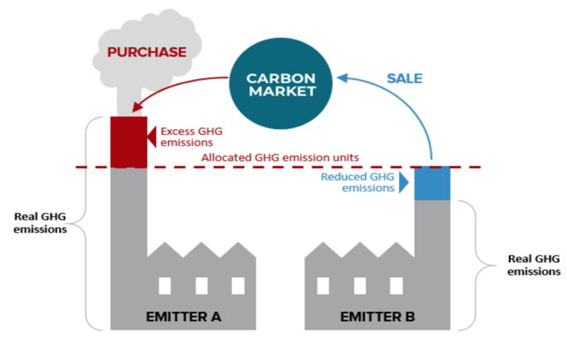India plans to open Carbon Market
Context
The Bill to amend the Energy Conservation Act, 2001 seeks to establish a domestic carbon market and facilitate trade in carbon credits.
About Carbon Markets
- Carbon markets are regulatory structures that allow, in particular, oil and gas-intensive companies or heavy industry (or, in the case of COP25, countries) to reduce their economic footprint through a series of incentives.
- The idea behind this system is that the most polluting countries can purchase the right to pollute more from countries that have not reached their emissions limits.
- The 1997 Kyoto Protocol turned polluting emissions into a commodity.
- For example, the European Union Emissions Trading System (EU ETS) is the largest in the world and has been in operation since 2015.

What are Carbon Credits?
- Carbon credits are measurable, verifiable emission reductions from certified climate action projects.
- These projects reduce, remove or avoid greenhouse gas (GHG) emissions.
- But they also bring a whole host of other positive benefits, for example, they empower communities, protect ecosystems, restore forests or reduce reliance on fossil fuels.
- Projects must adhere to a rigorous set of criteria to pass verification by third-party agencies and a review by a panel of experts at a leading carbon offset standard.
- After an organization or an individual buys a carbon credit, the credit is permanently retired so it can’t be reused.
India’s carbon emissions
|

